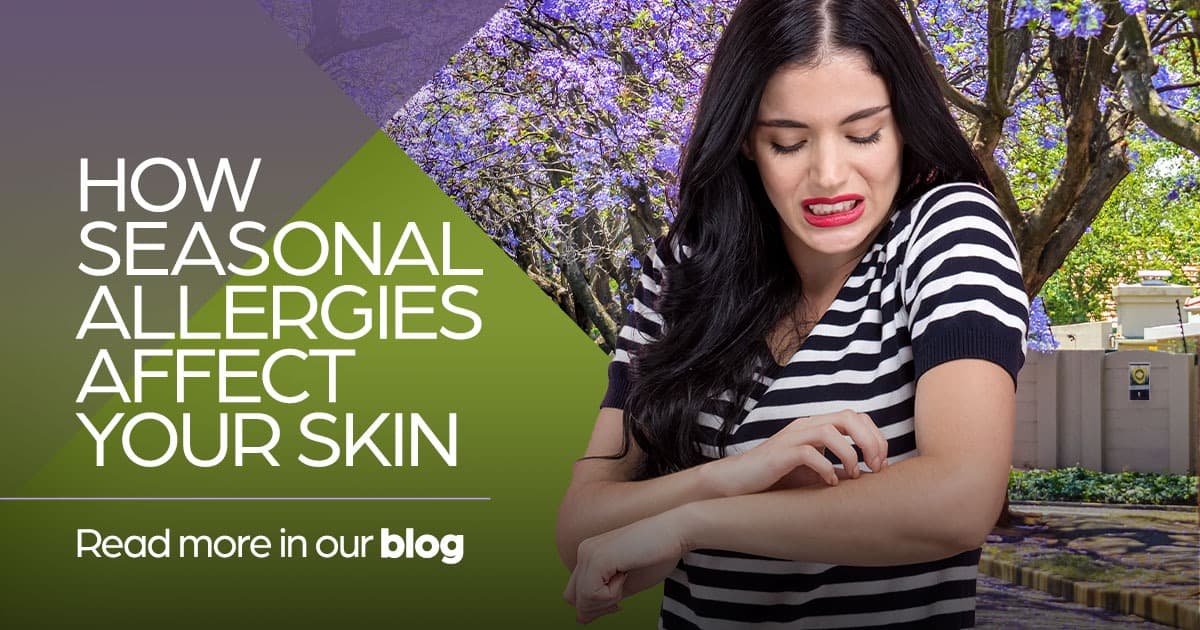Here in the Lone Star State, there’s something constantly blowing around that’s the bane of allergy sufferers’ existence. With milder temperatures year-round, there’s no shortage of allergy seasons and runny noses, itchy eyes, the works. We are a few days into spring, and with the changing of the seasons means a whole new set of allergens to deal with. These wreak havoc on the inside of your body, but they also take a toll on the outside. Here’s how seasonal allergies affect your skin.
Allergens and the Body
Allergies are often triggered by grass, weeds, trees, and mold pollen. Winds carry the tiny pollen grains, and they land in your eyes, nose, and skin. Most of these allergens bloom in mid-to-late spring through summer, but it also depends on where you live. When someone is affected by seasonal allergies, an overly vigilant immune system triggers a complex mix of cellular and chemical interactions within the body. The most common outcome is congestion and other allergy symptoms, like itchy, watery eyes, and sneezing.

Allergic Reactions and The Susceptibility of the Skin
While some skin conditions result from an allergic reaction, others make your skin more susceptible to them. For example:
- Atopic Dermatitis (Eczema)– Your skin is susceptible to external irritants when you have eczema. As a result, it’s incredibly easy for your skin to feel dry and irritated, even when there aren’t any allergens immediately nearby. It also means that when allergens are present around you, your eczema may flare up, and you may experience symptoms like swelling, redness, and even patches of skin that appear crusty or ooze if scratched.
- Allergic Contact Dermatitis– Allergic contact dermatitis occurs when your skin comes in direct contact with an allergen. For instance, coming in contact with poison ivy, poison oak, and poison sumac can also cause a red, itchy rash from the oily coating covering these plants. The allergic reaction can come from touching the actual plant or touching clothing, pets, etc. that have come into contact with the oil.
- Urticaria (Hives)– Hives are an inflammation of the skin when the immune system releases histamine. Histamine causes small blood vessels to leak, which leads to swelling in the skin. Acute urticaria occurs after eating a particular food or coming in contact with a particular trigger.

- Puffy Eyes and Dark Circles– Eye irritation is one of the most recognized symptoms of seasonal allergies. But the skin around them gets irritated too. Touching already irritated skin is the worst way to make your allergic reaction worse.
Seasonal Allergies, Chronic Skin Conditions, and Seeing Your Dermatologist

If you have eczema and suffer from seasonal allergies, now’s the time to see the local experts at Alamo Heights Dermatology. Even if seasonal allergies aren’t a daily interference, getting ahead of the game can make all the difference in the long run. Call us today at (210) 255-8447 or request an appointment online.
Sources:
https://www.aaaai.org/Conditions-Treatments/Allergies/Skin-Allergy


